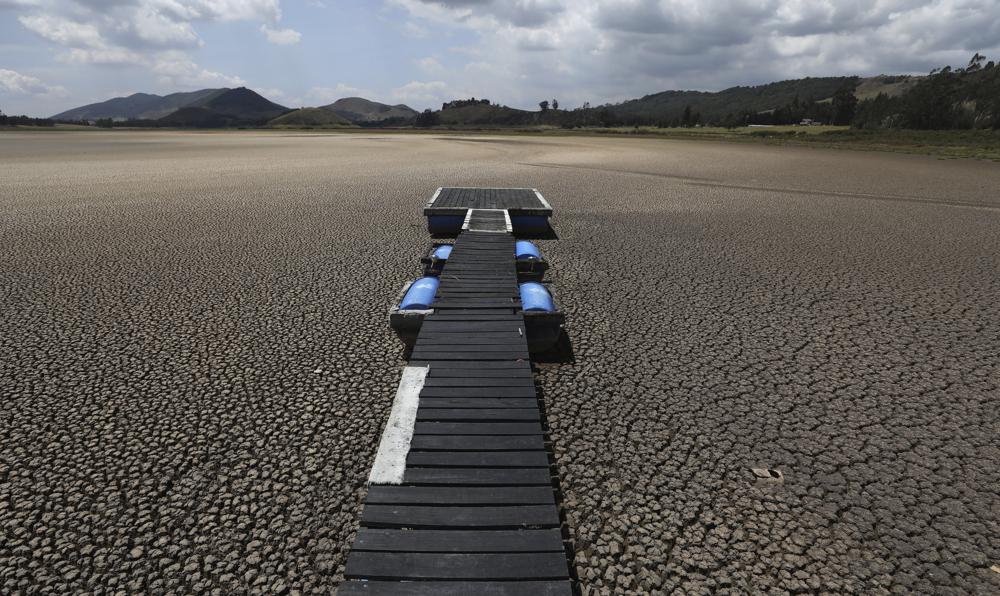A new study out of UNC calculates the number of premature deaths that will be caused by future climate change’s effect on global air pollution if left unaddressed.
According to the study, which appeared in the July 31 issue of Nature Climate Change, global air pollution is expected to result in roughly 60,000 deaths globally in the year 2030 and 260,000 deaths in 2100.
The study is the most comprehensive look yet on how climate change will affect health via air pollution. Associate Professor in Environmental Sciences and reaserch supervisor on the study Jason West claims that climate change’s impact on air pollution is a lesser known yet important factor in the equation.
“Climate change is known to affect a number of different influences including the spread of infectious diseases, access to food and water, heat stress and severe storms,” said West. “Many people might not expect that climate change might affect air pollution, but it turns out that that’s also one of the important effects of climate change on health.”
West, along with UNC graduate student Raquel Silva, used an ensemble of several global climate change models to calculate the number of premature deaths air pollution from climate change would cause.
According to the studies findings, West claims that rising temperatures are directly related to air quality.
“Climate change can affect air pollution in many different ways,” said West. “One would be by changing the reaction rates by which pollutants are formed in the atmosphere. Those reactions take place faster with hotter temperatures and more sunlight.”
The study can be found in its entirety online on the Nature Climate Change website.
Related Stories
‹

Policy, Language and Tech: UNC's Angel Hsu Discusses Combating Climate ChangeAngel Hsu is an associate professor in UNC’s environmental ecology program. She recently spoke with 97.9 The Hill about her work as the director of a data-driven envirolab and how technology can teach us more about combating climate change on a local government level. Check out highlights of the conversation below, which are lightly edited […]

The EPA Eyes Rolling Back Rules Projected To Save $275 Billion and 30,000 Lives Every YearWhen the head of the Environmental Protection Agency announced a wide-ranging rollback of environmental regulations, he didn’t mention how ending the rules could have devastating consequences to human health.

Get Ready for Several Years of Killer Heat, Top Weather Forecasters WarnTwo of the world’s top weather agencies forecast several years of even more record-breaking heat that pushes Earth to uncomfortable extremes.

Here’s What the Paris Climate Agreement Does and Doesn’t DoThe Paris agreement is a mostly voluntary climate pact. What does it do, and what does it mean as President Donald Trump removes the U.S.?

Town of Carrboro Files Lawsuit Against Duke Energy Over Climate Change and Deception on Fossil Fuel EffectsCarrboro is suing Duke Energy over its contributions to climate change and the resulting economic pressures put onto the local government.

Athletes Speak Their Fears: Climate Change Threatens Their Sports and Their HealthWritten by DORANY PINEDA and MICHAEL PHILLIS BAKU, Azerbaijan (AP) — Pragnya Mohan has been a professional triathlete for nearly a decade, but summers in her native India are now so hot that she can’t train there anymore. She escaped the heat to train in the United Kingdom, but worries about a day when a warming world […]

How the Hot Water That Fueled Hurricane Beryl Foretells a Scary Storm SeasonWritten by SETH BORENSTEIN Hurricane Beryl’s explosive growth into an unprecedented early whopper of a storm shows the literal hot water the Atlantic and Caribbean are in right now and the kind of season ahead, experts said. Beryl smashed multiple records even before its major-hurricane-level winds approached land. The powerful storm is acting more like monsters that […]

A Big Boost for a Climate Solution: Electricity Made From the Heat of the EarthOne method of making electricity cleanly to address climate change has been quietly advancing and on Tuesday it hit a milestone.

Fewer Fish and More Algae? Scientists Seek To Understand Impacts of Historic Lack of Great Lakes IceWritten by TODD RICHMOND Michigan Tech University biologists have been observing a remote Lake Superior island’s fragile wolf population every winter since 1958, but they had to cut this season’s planned seven-week survey short after just two weeks. The ski plane they study the wolves from uses the frozen lake as a landing strip because […]

Earth Shattered Global Heat Record in ’23 and It’s Flirting With Warming Limit, European Agency SaysWritten by SETH BORENSTEIN Earth last year shattered global annual heat records, flirted with the world’s agreed-upon warming threshold and showed more signs of a feverish planet, the European climate agency said Tuesday. In one of the first of several teams of science agencies to calculate how off-the-charts warm 2023 was, the European climate agency […]
›












